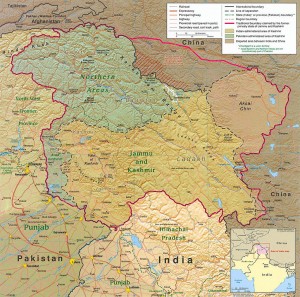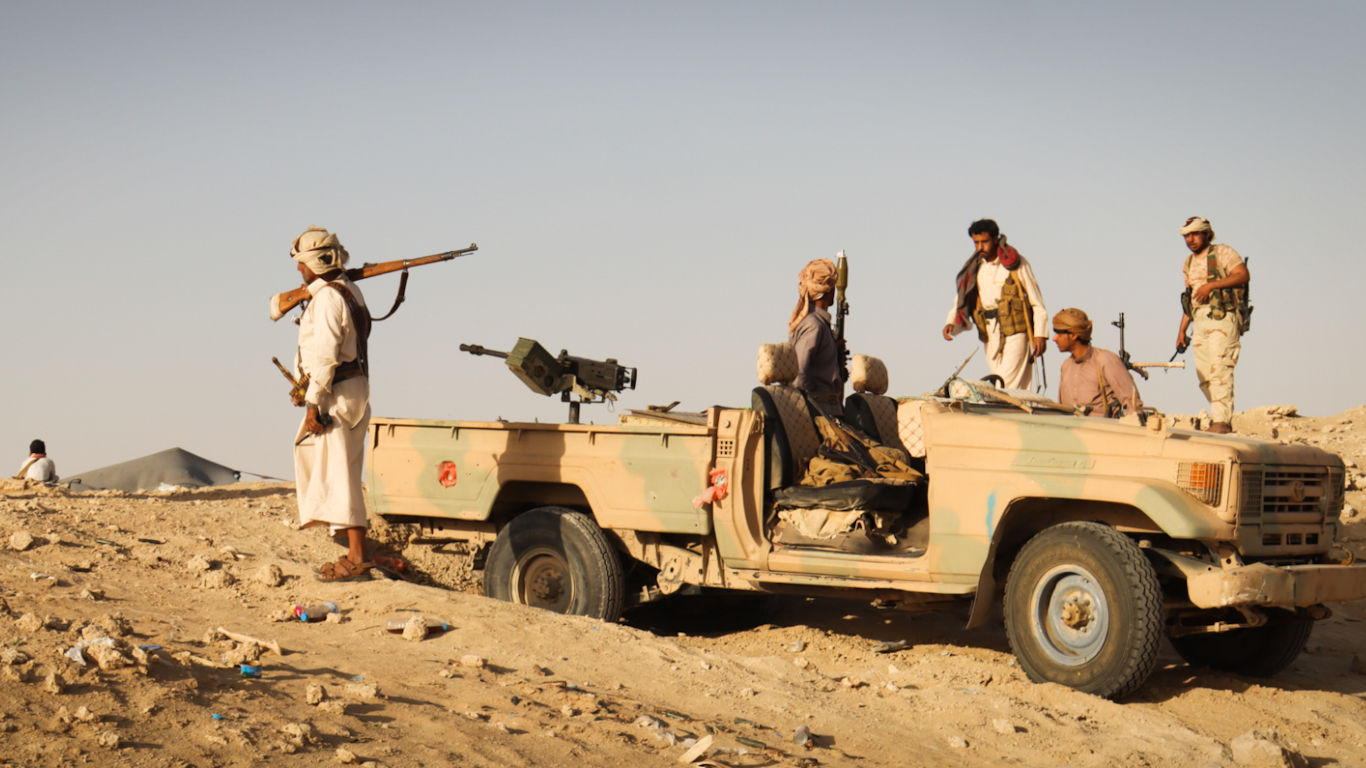
Kashmir region. Map by CIA (public domain) via Wikimedia Commons
While we’ve been distracted by the fighting in the Middle East, there’s been a resurgence of a conflict which may have more consequences worldwide than any Middle Eastern conflict would.
To understand what’s happening here, we need to go back to 1947. The British, after facing increasing nationalism and mutinies by their own soldiers, conceded that the British India Empire was a thing of the past. However, they also saw the need for a Muslim homeland, as there was a large Muslim population in the region, and tensions between the Hindus and Muslims were high.
The British proposed what was called the Mountbatten Plan, named after Louis Mountbatten, who was the last viceroy of British India. This plan divided British India into two parts; India and Pakistan. India was to hold the majority of the Hindus, and Pakistan to hold the majority of the Muslims. This was accepted by the Indian political leaders on June 2, 1947, and on August 14, Pakistan became a dominion in the Commonwealth of Nations, followed the next day by India becoming an independent country. Pakistan became the Islamic Republic of Pakistan in 1956.
Where does Kashmir come into this? When the partition took place, the 562 princely states of British India were given the option to become part of India, part of Pakistan, or to become independent. Pakistan expected that Kashmir would join Pakistan, as most of its population was Muslim. However, the government of the state was ruled by a Hindu, the Maharaja Hari Singh. In October of 1947, Muslim revolutionaries from western Kashmir and Pakistani tribesmen united in an attempt to overthrow the Kashmir government, which led Singh to ask India to accept Kashmir as part of India. On October 27, 1947, Kashmir became an Indian state.
This led to the rebels and tribesmen furthering their push into Kashmir, and Singh asked the Indian government to intervene. Thus began the first Indo-Pakistan War. The conflict’s been going on ever since then, with some memorable spikes in the violence; three more wars between India and Pakistan in 1965, 1971 and again in 1999 (the country of Bangladesh, formerly East Pakistan, came about due to India’s intervention on the side of the Bangladesh nationalist forces in their struggle for independence in the 1971 war). In 1962, China and India had a short war, with China gaining control of the Aksai Chin region.
Which brings us to the present day. If it were just up to the two countries’ leaders, there probably wouldn’t be any problem and the whole Kashmir question would more than likely be put up for a vote by the citizens of Kashmir. Both Narendra Modi of India and Nawaz Sharif of Pakistan are hard line nationalists, but they also represent the conservative business class that recognizes the value of cordial relations between the two countries. It’s questionable how much they’d go against the wishes of their wealthiest supporters. But, there’s a third party in the ballgame; the Pakistani military. The Pakistani military isn’t interested in better relations with India; they see that as an end to the army’s elite status as saviors of the country and leading to possible reductions in its substantial economic power.
Arun Jaitley, the Indian Defense Minister, says the recent violence is caused by Pakistan’s attempts to “precipitate tension where none existed.”
“Pakistan in these attacks has clearly been the aggressor, but it must realize that our deterrence will be credible. If Pakistan persists with this adventurism, our forces will make the cost of this adventurism unaffordable.”
Pakistan for their part says they’re too busy fighting internal extremists to be involved with causing trouble along the Kashmir border. However, Bilawal Bhutto Zardari, the head of the Pakistan Peoples Party, said recently in a speech: “I will take back Kashmir, all of it, and I will not leave behind a single inch of it because, like the other provinces, it belongs to Pakistan.”
As horrible as the situation is in Kashmir, it’s not as bad as it could be. You see, both India and Pakistan have nuclear weapons. With the posturing and chest pounding happening on both sides, a “limited” nuclear exchange can’t be completely ruled out. However, it’s unlikely that any such exchange would be limited when all was said and done. Kashmir could be a bigger tinderbox than the Middle East ever dreamed of being.




![Photo By Brendon Connelly from Newberg, Oregon (Quesadilla and light reading) [CC-BY-SA-2.0 (http://creativecommons.org/licenses/by-sa/2.0)], via Wikimedia Commons](http://occupyworldwrites.org/wp-content/uploads/2014/04/1024px-2010_reading_newspaper_5212998986-225x300.jpg)